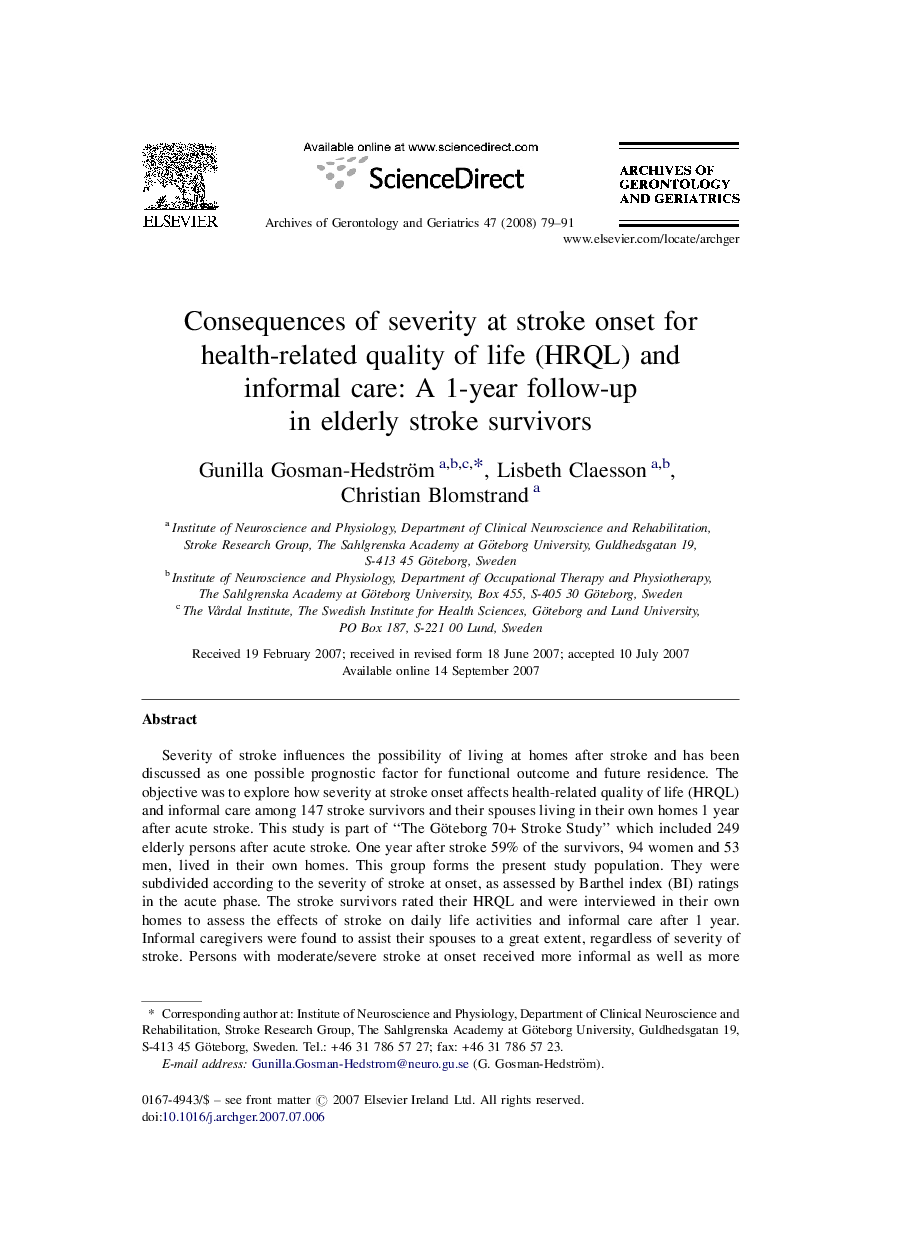| Article ID | Journal | Published Year | Pages | File Type |
|---|---|---|---|---|
| 1904201 | Archives of Gerontology and Geriatrics | 2008 | 13 Pages |
Severity of stroke influences the possibility of living at homes after stroke and has been discussed as one possible prognostic factor for functional outcome and future residence. The objective was to explore how severity at stroke onset affects health-related quality of life (HRQL) and informal care among 147 stroke survivors and their spouses living in their own homes 1 year after acute stroke. This study is part of “The Göteborg 70+ Stroke Study” which included 249 elderly persons after acute stroke. One year after stroke 59% of the survivors, 94 women and 53 men, lived in their own homes. This group forms the present study population. They were subdivided according to the severity of stroke at onset, as assessed by Barthel index (BI) ratings in the acute phase. The stroke survivors rated their HRQL and were interviewed in their own homes to assess the effects of stroke on daily life activities and informal care after 1 year. Informal caregivers were found to assist their spouses to a great extent, regardless of severity of stroke. Persons with moderate/severe stroke at onset received more informal as well as more formal help than the ones with mild stroke. As expected, the group with moderate/severe stroke also was more dependent on personal assistance, used more assistive devices (ADs) and rated their HRQL lower. However, persons who were assessed as mild stroke at onset also needed informal care, particularly with more complex tasks. Gender differences were obvious, since many women were living alone after their partner had died, while the men usually had assistance from their spouses. Noteworthy is that informal caregivers assisted their spouses to a large extent, regardless of severity of stroke at onset. Different kind of support programs, extended day rehabilitation centers and more relieve places should be developed. That could possibly improve the life situation for the elderly stroke survivors and their caregivers, generally an elderly spouse.
